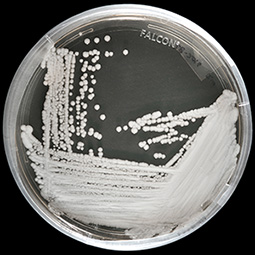
Mycovia Eyes FDA Filing as Yeast Infection Drug Meets Phase 3 Goals

Antifungal therapies developer Mycovia is preparing to seek FDA approval of its first drug after the compound posted positive results in two late-stage clinical trials.
The drug is an experimental treatment for recurrent vulvovaginal candidiasis (RVVC), more commonly referred to as a yeast infection. Antifungal drugs are available for acute cases of yeast infection but there is no FDA-approved treatment for RVVC, defined as three or more episodes in a 12-month period. Durham-based Mycovia estimates RVVC affects nearly 138 million women worldwide each year.
Mycovia develops small-molecule drugs that target metalloenzymes, which are enzymes that contain a metallic atom important to enzymatic activity. By blocking these enzymes, the company aims to treat a range of diseases, including fungal infections. The company’s initial target is CYP51, an enzyme that’s key to the production of a compound essential for maintaining cell wall structure in fungi. Antifungal drugs that block CYP51 are already available but Mycovia says its drugs could offer greater efficacy and fewer side effects.
Lead Mycovia drug candidate oteseconazole (formerly known as VT-1161) is a 150 mg capsule. The company tested the drug in two Phase 3 studies, each enrolling more than 300 patients. For the first two weeks of the studies, patients were given three doses of fluconazole, a generic antifungal commonly used to treat acute yeast infections. Frequent side effects for fluconazole include headache, nausea, and abdominal pain, according to its label. In the second part of the oteseconazole studies, a 48-week maintenance phase, patients were randomly assigned to receive either the Mycovia drug or a placebo.

The main goal of the two clinical trials was the proportion of patients with one or more culture-verified acute episodes of yeast infections during the maintenance phase. Mycovia said Wednesday that both studies met that goal, though the biotech did not specify the proportion of patients that hit that mark. The company did say oteseconazole was able to prevent a recurrence of infection during the maintenance phase in 96% of patients in one of the Phase 3 tests and 93% of patients in the other.
The Mycovia drug was well tolerated by patients, according to the company. Side effects included headache, nausea, and diarrhea – each occurring in less than 1% of patients. No serious adverse events related to the drug were reported. Earlier this year, Mycovia extended the studies to continue to evaluate the drug’s effect after an additional 48 weeks.
Jack Sobel, a professor of internal medicine at Wayne State University and an investigator in the oteseconazole clinical trials, described the preliminary results for the two Phase 3 studies as encouraging.
“Given there are currently no FDA-approved options indicated to treat RVVC, I hear firsthand from many of my patients about not only the distressing physical symptoms, but also the emotional and psychological impact of this disease on their lives,” Sobel said in a prepared statement. “I’m hopeful that, if approved, oteseconazole will be an important option for many women who are in need of a new therapy.”
Mycovia traces its roots to Viamet Pharmaceuticals of Durham, a startup formed in 2004 to develop drugs for fungal diseases and prostate cancer. The company was co-founded by Holden Thorp, a University of North Carolina at Chapel Hill chemistry professor who went on to serve as the school’s chancellor from 2008 to 2013.
In 2014, Viamet spun out its prostate cancer business into a new company, Durham-based Innocrin Pharmaceuticals, but kept its antifungal research. As the antifungal programs progressed in clinical trials, Viamet explored going public but twice withdrew planned stock offerings. In 2018, the NovaQuest Capital Management of Raleigh acquired the biotech for an undisclosed sum and renamed it Mycovia.
Mycovia has a partnership with Gedeon Richter that gives that Budapest, Hungary-based pharmaceutical company rights to oteseconazole in Europe, Latin America, and Australia, as well as Russia and other former Soviet countries. The deal could bring Mycovia milestone payments pegged to Gedeon Richter’s progress developing and commercializing the drug in those markets. Mycovia has a similar alliance with Jiangsu Hengrui Medicine covering China.
With the positive Phase 3 data in hand, Mycovia plans to seek FDA approval of its drug in the first half of 2021. The company is also continuing to test oteseconazole as a treatment for acute yeast infections among women with RVVC in a Phase 3 study that is comparing the drug to fluconazole. Preliminary results are expected by the end of this year; data from that study and the two other late-stage clinical trials will be included in the submission to the FDA.
